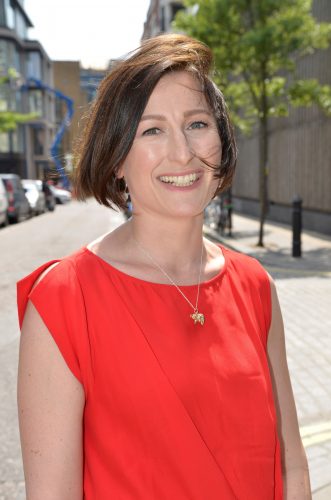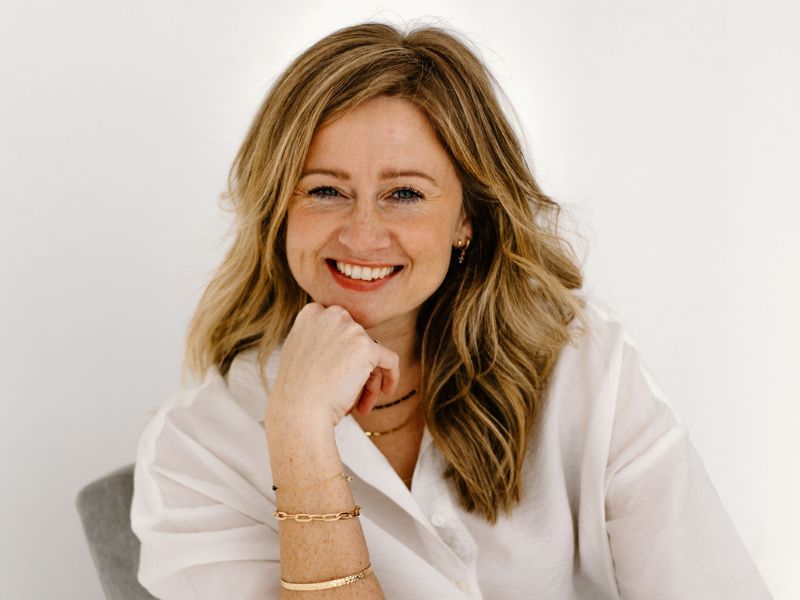 Lola Gamester is Head of Production at Blacklist Creative.
Lola Gamester is Head of Production at Blacklist Creative.
She is formerly of kid’s TV behemoth, Turner Broadcasting and now heads up a video production business working internationally with some of the world’s biggest broadcast brands.
Tell us a little about yourself, your background and your current role
I’m head of production and co-owner at Blacklist Creative. I work directly with our clients while manging the agency resources, acquiring new business and keeping up with the latest market, production and broadcasting trends. I joined Blacklist after spending nine years at Turner Broadcasting, working on their kids brands including Cartoon Network & Boomerang.
As a TV, film and video production company, we look after the whole process of delivering creative visual content across broadcast, commercial and digital channels. We create quality content that understands our clients’ brand, speaks to their audiences and impresses their stakeholders, from concepts, scripts and storyboard through to live action filming, character animation and motion graphics, all geared towards actively engaging and inspiring audiences.
Did you ever sit down and plan your career?
No, not at all! I knew from University that content production was the right place for me, as I loved the creativity of the industry. I’ve also found the uncertainty that comes with freelancing quite challenging, and generally approached whatever job I was offered on its own merits. My current role began as holiday cover and after realising I had a great rapport with the co-founders Dom and Mathias, I’ve never left!
Have you faced any particular challenges along the way, and if so, how did you deal with them?
TV, media and production doesn’t have the greatest reputation for encouraging women into the top roles – to give an example, there’s only one female Best Director Oscar winner in the ninety-year history of the award, Kathryn Bigelow. Senior role models in any industry are important, because you can’t be what you can’t see. I’m proud to be a role model for my daughter who sees me not only working hard to provide for us both, but also enjoying my job and getting personal satisfaction from my professional achievements.
My personal and professional mantra is: work hard, be nice. Senior role models are important to have, but they also have to be accessible. The myth that women have to act like men or be ball breakers to reach the top should be properly dismissed. Personal relationships are everything in business and to my role, and you don’t get anywhere in a career by burning bridges left and right.
If you could change one thing for women in the workplace, what would it be?
I think probably the biggest barrier to women in the industry is to do with the long hours culture, which means that whichever parent has the primary responsibility for childcare, whether male or female, often finds it very difficult to stay in media production once they have kids. Combined with the high cost of childcare, means there is a noticeable brain-drain when talented women leave their careers because the demands of juggling home life and work is too much.
There is also a bit of a myth around part time work which I think is often seen as a way to ‘have it all’ but actually can have a seriously detrimental effect on the long term reach of a woman’s career. Part time work can be as valuable, but as a culture we generally give more weight to the contribution that the person who is there day in day out makes, rather than noticing that sometimes it’s the person who is more efficient with their time who is adding real value. So, I would encourage a change in perspective in terms of how businesses measure their employees’ value, and breaking free of the 9-5.30pm and beyond myth of the working day. I encourage our team to really question whether long hours are a sign of a committed work ethic, or poor time management?
Do you have any perspectives on mentoring, or have you ever been a mentee?
I’ve never been formerly mentored, although it’s a great way to broaden your perspective and outlook on work. Informally, I look to the senior executivess for insight into how they got where they are and do what they do, and I really do try and see every project as an opportunity to learn. In my experience, people are generally very happy to share their expertise and actively like being asked for advice as it validates that they are doing a good job. I’ve had some wonderful managers over the years who have been extremely encouraging and I think part of this is because I have been quite vocal in how keen I am to learn from them. We’re also very keen as a business to offer opportunities to up-and-coming graduates trying to get footholds in the industry, and we regularly work with institutions like Ravensbourne and the University of Westminster to give students more of an insight into real life working in production and video development.
What has been your biggest achievement to date?
Taking the step with Dom and Mathias to be my own boss. As a naturally risk averse person, I never would have been brave enough to do that alone, but working as a three means we share the risks, complement each other’s skillsets and support each other in all decisions.
What is your next challenge and what are you hoping to achieve in the future?
Maintaining the family feel and connectedness of a small company, while still growing the team. The cultural DNA of Blacklist is really important to the business and its clients. We don’t want to lose that sense of personality, approach and the care we take on delivery as we scale.







